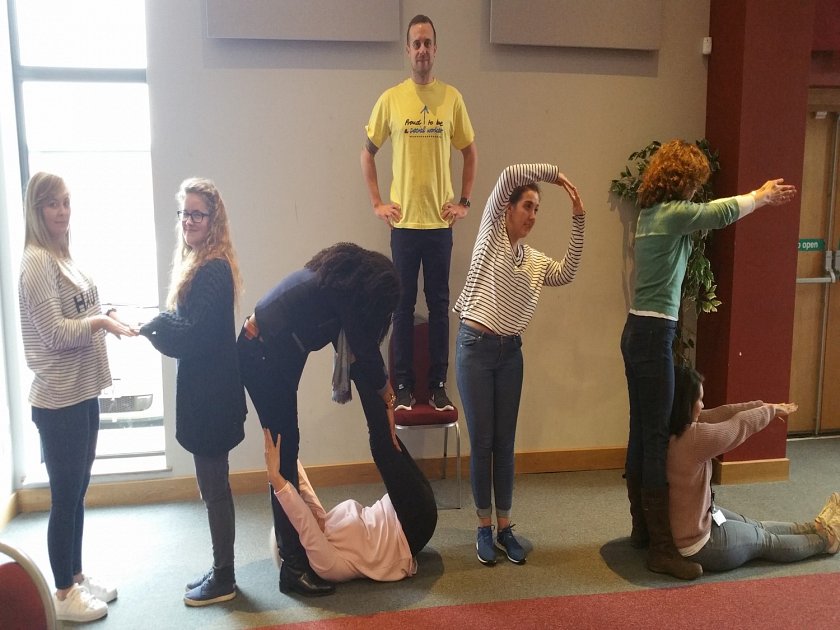
- by Siobhan Maclean
- 27th Aug 2018
HOPE: The most important ingredient in social work
This photo was taken over a year ago now, but this is still one of my favourite images of social workers. I had spent a day with social workers in the early stages of their career as part of an ASYE workshop programme. I provided a box of art and crafts materials and asked the workshop participants to go into small groups and create something that reflected social work to them. This small group asked if they could borrow the T Shirt that I carry around in my training bag (expertly modelled here by Michael) and then they created this photo image. In presenting their work to the rest of the group, they discussed how the current obsession with selfies could be seen as indicating a focus on self at the exclusion of others. This photo includes everyone in the group to address this. They spelt out the word HOPE, as they felt that was an essential aspect of social work practice. It took the group less than 5 minutes to create this piece and I LOVE it. I am a great admirer of the work of Dr Elizabeth (Betsy) Clark who works in America where the importance of a hopeful approach to social work practice is much more widely acknowledged. Clark (2017) argues that:
- We live in a hope challenged world and we have an obligation to be hope providers
- Hope is complex – it is a way of feeling, thinking and action
- Hope is based in reality – it expands perspective and increases persistence
- There are high-hope and low-hope individuals. People can also become hope-lost
- It is easier to prevent a person becoming hopeless than to help someone regain hope
- Hope is dynamic
- There is always something to hope for and everyone has the right to hope
- Hope is defined in many ways and is a very personal issue, it may or may not be linked to spirituality, faith and culture. The most important thing is that the person themselves decides what to hope for
- There is no such thing as “false hope”. There can be false reassurances but not false hope. Hope does not require certainty
- Professional hope is an antidote to burnout
The importance of hope in social work in the UK has been undermined by a focus on the problems associated with over optimism. Seeing these social workers clear about their sense of hope as newly qualified social workers was really refreshing. We all have a great deal to learn from this image. Let’s all be more hopeful in this hope challenged world! The people in this photograph gave me permission to use this image and gave me their names to use too. So, thanks for the image go to:
Anna Cowell
Michael Semple
Catherine Wright
Gemma Bowe
Siobhan Smith
Karin Burke
Michelle Agbor
Eleanor Remedios
